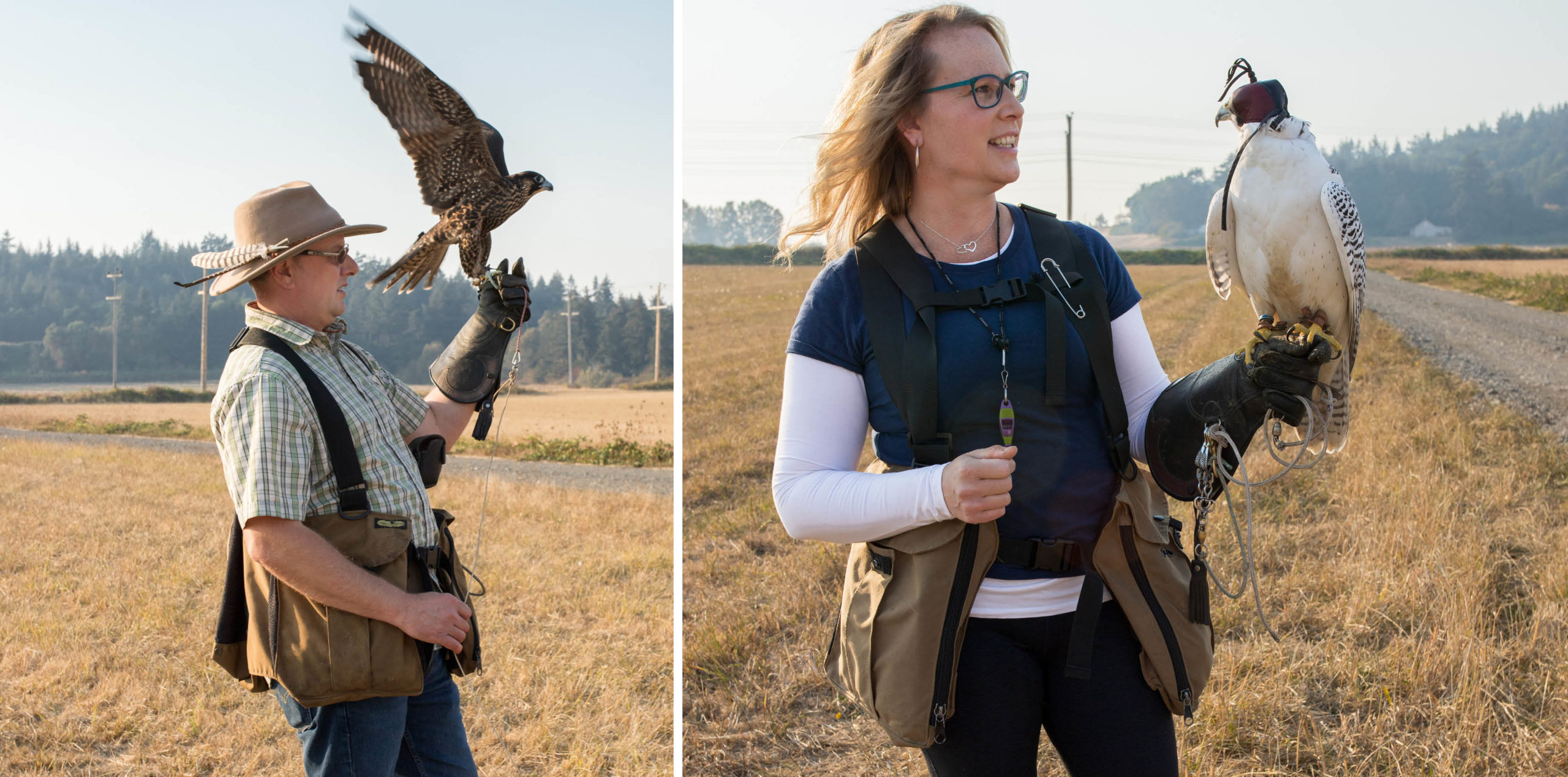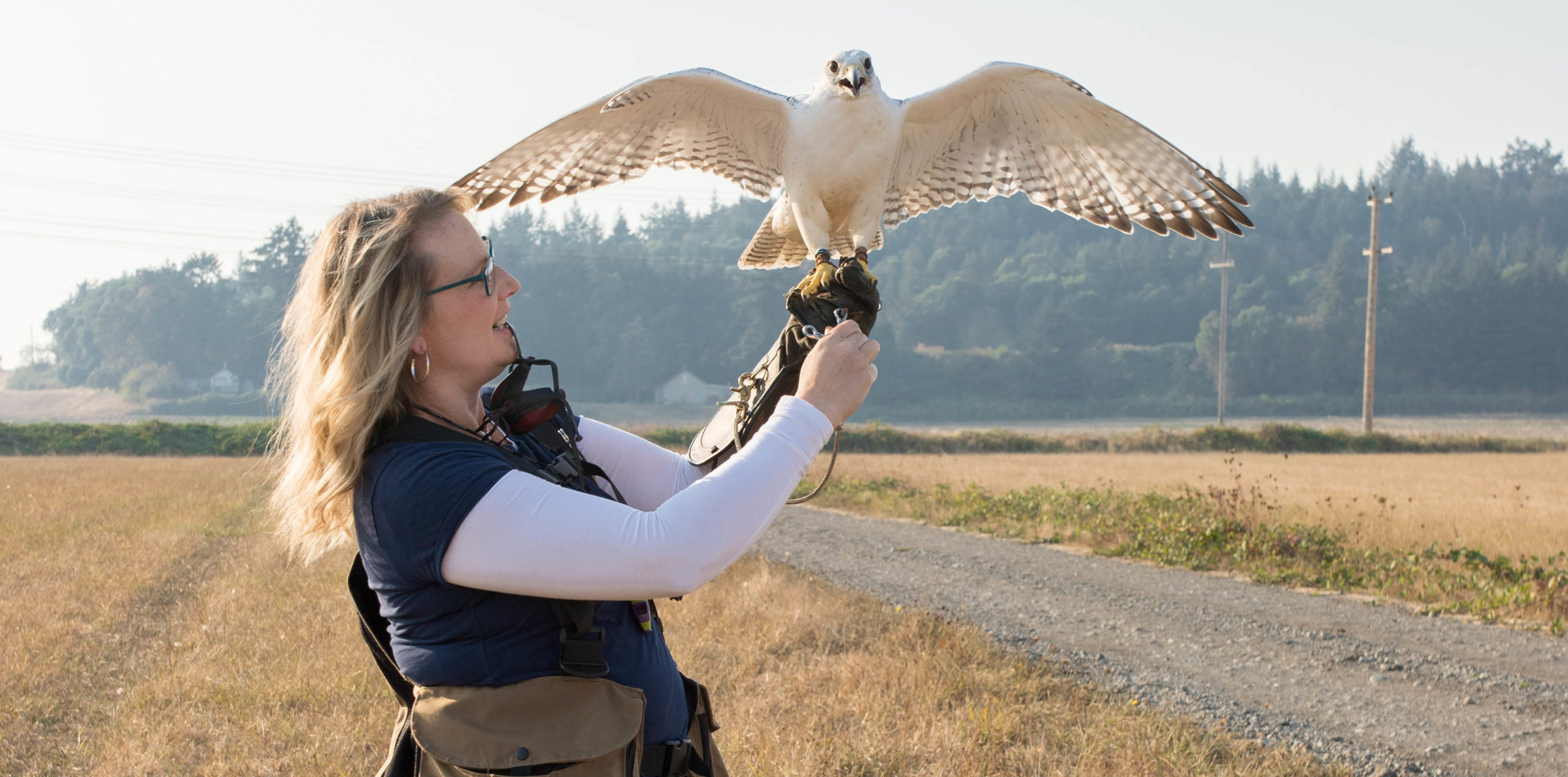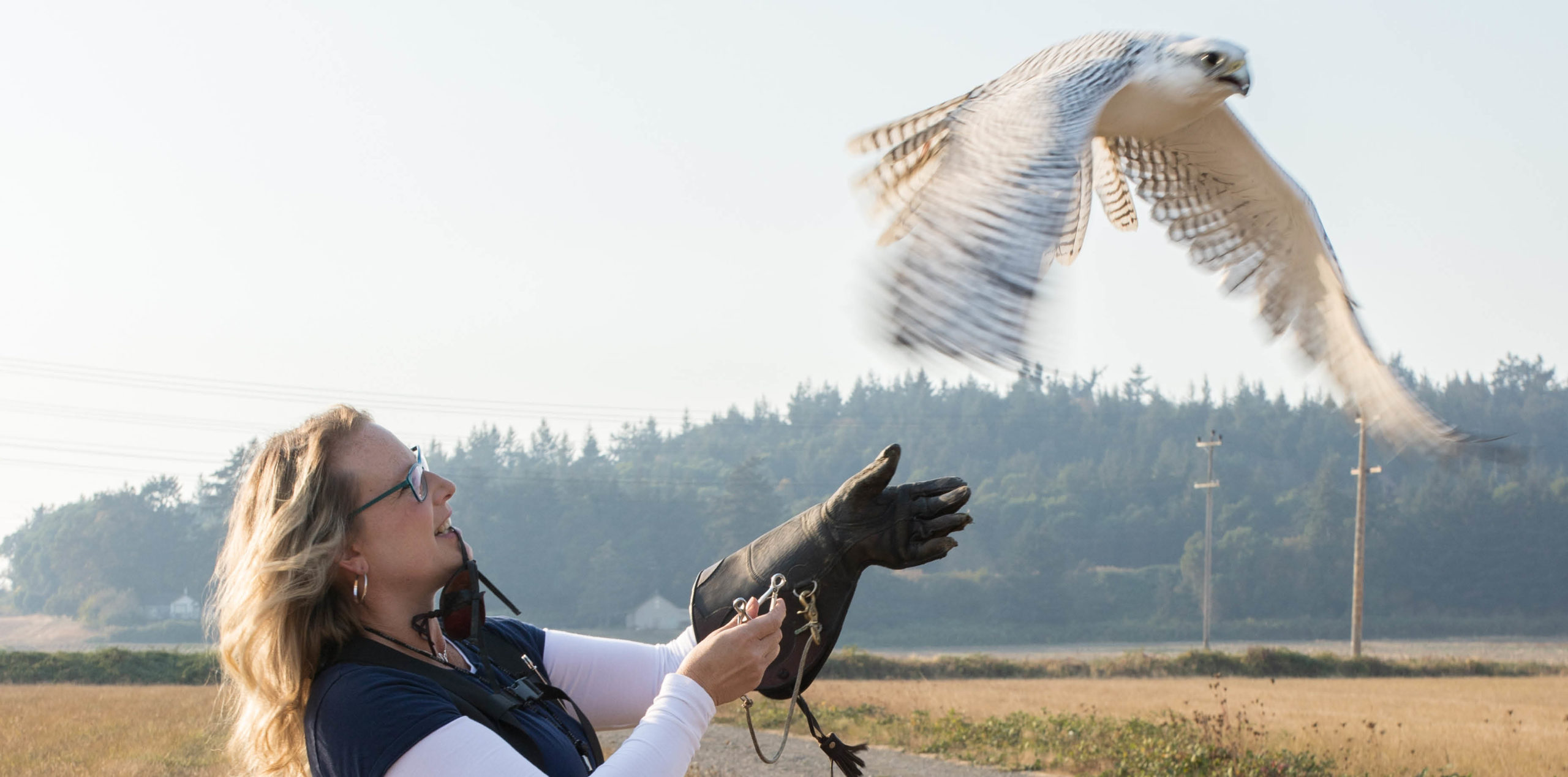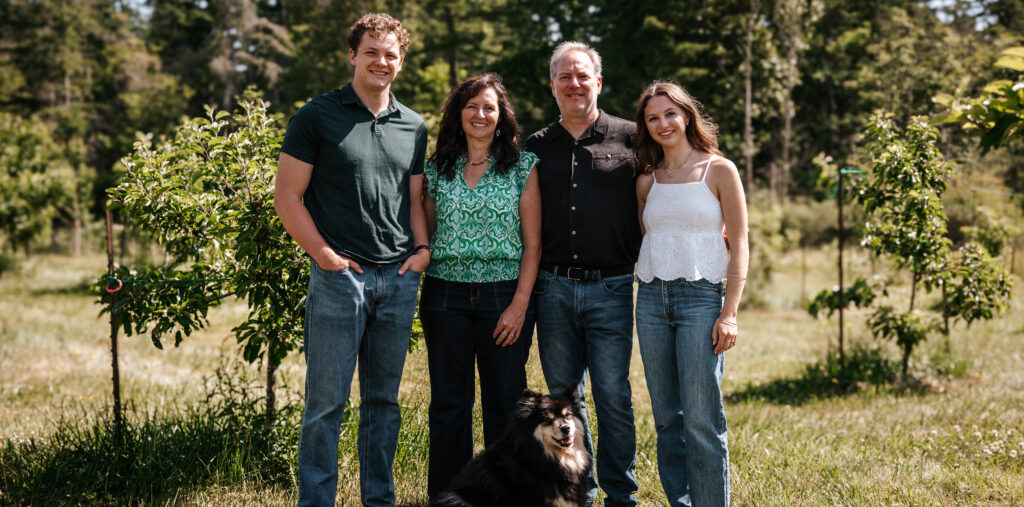by Jamila Douhaibi | photos by Kathryn Alvarez Photography –
Many people interested in birds of prey know about The Raptors Centre in Duncan. But there are experienced falconers working with birds of prey in our community. Kristine and Allan Marshall own a hobby farm in North Saanich: the home base for falcons and racing pigeons, as well as a little farm that is doing a lot in its community.
Kristine, who has been working with birds of prey for the last 12 years, says that falconry is a tradition dating back thousands of years. Generations of knowledge keepers have passed on information about falconry through oral storytelling and falconry is “recognized as an intangible cultural heritage by UNESCO.”
Allan became interested in falconry growing up in England and has been working with birds of prey for 20 years. Kristine learned about falconry from him, and eventually got her own bird. The couple moved to North Saanich in 2014 and feel very fortunate to be able to keep the falconry tradition going. They not only practise falconry, but also mentor people interested in working with birds of prey, educate youth, and help with the rescue and rehabilitation of injured birds.
Currently, the Marshalls have four distinct types of raptors – a peregrine, a gyrfalcon, a goshawk and an American kestrel. These birds range in size and speed. The American kestrel is the smallest and common in North America, versus the gyrfalcon, which is the largest falcon in the world. The birds hunt by flying high and then plummeting quickly to reach prey. Kristine says that the “peregrine falcon is the fastest animal on earth and stoops (attack dives) at 250 mph.” Goshawks are agile birds that fold their wings in tightly so they can hunt in the forest.
Working with other farms in North Saanich, the Marshalls are able to fly their birds around larger areas. Kristine says that their symbiotic relationship with farms offers a “natural abatement method” for animals like ducks, geese and rabbits. Their birds have different spaces to fly and hunt in areas that no longer have the predators they historically had. The benefit for the farmers, says Kristine, is that there is “natural control on farms without the use of guns, traps or chemicals.”
Racing pigeons are used to teach younger falcons how to fly high and fast. Kristine says that it takes “hundreds of hours and dedication” to train the racing pigeons. The pigeons get released, and when they have received enough of a head start, the falcons are sent after them. The training is so exact that the falconer knows when to release the falcon from their glove to ensure that the pigeon makes it back to their loft safely.
The Marshalls’ farm is also home to chickens and bees. Kristine says that their apiary, Abeille Amour, “has been a labour of love, despite the many challenges facing beekeepers country-wide.” She believes it is more important than ever to support current beekeepers, but also to encourage more people to become beekeepers. Many people in the community have “learned about the birds and the bees after visiting our property,” says Kristine.
Teaching others is another aspect of their work with birds of prey. They present to schools, the Girl Guides and Boy Scouts, and to Parks Canada. Kids see flying demonstrations and have a chance to hold a raptor, while Allan and Kristine instill in them not only an appreciation for birds of prey, but also the importance of protecting wilderness and wildlife. Kristine says that people often open up and share their stories because “the birds impact people profoundly.”
Whether it’s training birds of prey and racing pigeons, volunteering with Raptor Rescue to provide emergency care for birds, educating people about the importance of wildlife, or working with their bees, Kristine and Allan say they are so thankful for the community they are in. Kristine says that she wants to stress that “we love North Saanich, our community, our neighbours, the greenspaces, marine interfaces and all the incredibly dedicated people who grow food for themselves and others.” The work that Allan and Kristine do with birds of prey is an amazing part in their efforts to support and improve our community.






